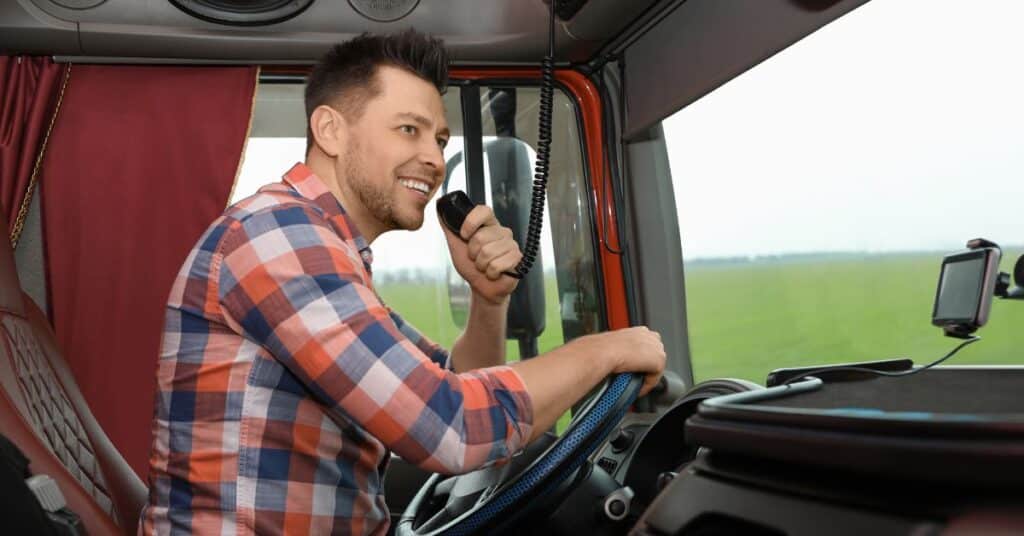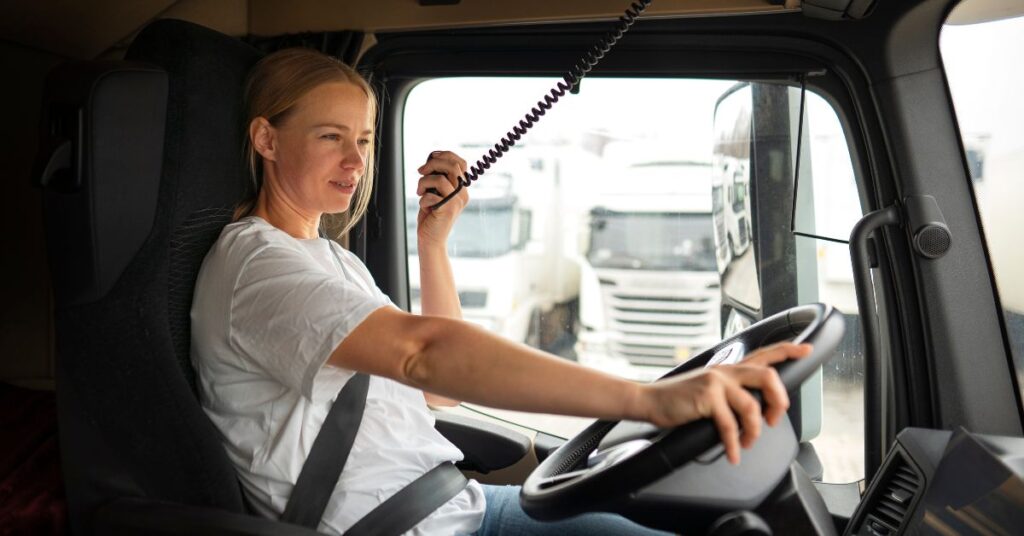CB radios have been around for a long time and are commonly used by truck drivers and people who enjoy them. You might hear people say on CB radios, What’s your 20? we will discuss CB radios and learn that CB radio language isn’t just helpful for talking on the radio; it also teaches us about a cool group of people and their special way of communicating. Let’s dive in and uncover the secrets behind CB radio talk!

Contents
Short Answer:
“What’s your 20?” means “What is your location?” in CB radio lingo. It’s a common phrase used to ask where someone is while communicating over a CB radio.
Origins of CB Radio and Its Lingo
Brief History of Citizens Band (CB) Radio:
CB radio, which stands for Citizens Band Radio, became popular in the 1940s. Without any special permission, people could communicate over short distances. At first, small businesses, farmers, and people with hobbies used CB radios to chat with each other nearby.
The government, specifically the Federal Communications Commission (FCC), reserved certain radio frequencies for CB radios. This decision made it simple for people to communicate without any extra steps. Because of this, CB radios became common among many different types of people.
Development of CB Radio Lingo:
As more folks began using CB radios, they realized they needed a way to talk that was fast and easy to understand. So, they made up their own language called CB radio lingo or “CB slang.” This language made communication quicker and clearer.
People created CB lingo because they wanted to talk without being bothered by other radio signals. They also wanted to keep their messages short and simple. Plus, using CB lingo helped them feel like they were part of a group. Over time, this special language became full of interesting words and phrases that showed the experiences and culture of the people who used it.
Role of CB Radio in Communication:
CB radio became important for truck drivers, travelers, and folks in faraway places. Truckers used CB radios to share updates about road conditions, traffic jams, and anything else they needed to know during their long drives.
But CB radio was more than just a tool for practical things. It brought people closer together. Talking about the challenges of long journeys and the thrill of exploring new places made CB radio users feel like they belonged to a big group. It created strong friendships among people who enjoyed using CB radios. As a result, it wasn’t just a way to chat but a way to bond with others who shared similar interests.

Decoding “What’s Your 20”
Explanation of the Phrase’s Meaning:
When you hear someone on a CB radio ask, “What’s your 20?” they ask where you are. In CB radio talk, “20” means your current location
This phrase is handy when people need to meet up, share travel updates, or stay aware of where everyone is during group conversations.
Common Usage Scenarios:
People use the phrase “What’s your 20?” in many situations on CB radios. Truck drivers use it to tell other drivers, dispatchers, or roadside help where they are on the road. Travelers and outdoor lovers use it to keep track of each other’s locations during trips or adventures.
Even emergency responders and police officers use “What’s your 20?” when sharing important information. This phrase is useful because it works on CB radios for all people and situations.
Importance of Clarity in CB Communication:
Being clear and specific is super important when talking on a CB radio, especially when sharing important stuff like where you are or where you’re going. Using phrases like “What’s your 20?” improves understanding between people.
Other Common CB Lingo
Examples of Other Frequently Used CB Radio Phrases:
- 10-4: This means okay or I understand.
- Breaker, Breaker: Used to start a conversation or ask for a pause.
- Smoky: Refers to police or law enforcement, especially speed traps.
- Bear: Another word for law enforcement, often used with smoky to mean police.
- Good Buddy: A friendly term used among CB radio users to show camaraderie.
These are just a few examples of the many words and phrases people use on CB radios. Each one has its own meaning and helps make conversations smoother and easier.
Importance of Knowing CB Lingo for Effective Communication:
Knowing CB radio terminology is important for talking well with others on the CB radio. When people understand and use common CB phrases, they can share information accurately and quickly, no matter where they are.
Plus, using CB lingo helps people feel like they’re part of a group. Even though everyone is from different places and backgrounds, it’s like having your own secret language.
Safety Considerations When Using CB Radio:
While CB radios are helpful for communication, safety always comes first. People using CB radios should follow safety rules, especially when driving or outside.
Pay attention to what’s happening around you, and be careful while using the radio. By being safe and responsible, people can enjoy talking on the CB radio without worrying about accidents or problems.
Applications of CB Radio Today
Current Uses of CB Radio Beyond Traditional Trucker Channels:
Recreational Vehicles (RVs) and Caravans: Many RV owners and caravan enthusiasts still use CB radios to plan their trips, share road information, and stay connected during group outings.
Off-Road Adventures: People who enjoy off-road driving depend on CB radios to communicate with fellow drivers, navigate rough terrain, and seek assistance in areas where cell phones may not work.
Emergency and Disaster Response: CB radio networks play a crucial role in emergencies and disasters, allowing first responders, volunteers, and affected communities to communicate and coordinate relief efforts.
Community Events and Gatherings: CB radio enthusiasts often gather for events where they can meet, share stories, and participate in activities centered around their shared interest in CB radio.
Communities and Hobbies That Still Rely on CB Radio:
- Trucking Community: Truckers use CB radios extensively to share updates on road conditions, traffic, and important information while driving.
- Amateur Radio (HAM) Operators: Some amateur radio enthusiasts integrate CB radios into their hobby, experimenting with antennas and frequencies to communicate with others and explore radio technology.
- Off-Grid Living and Homesteading: CB radio is a vital communication tool for individuals living off-grid or remote areas, enabling them to stay connected, seek assistance during emergencies, and participate in community initiatives.
Future Outlook for CB Radio Technology:
Despite advancements in communication technology, CB radio remains relevant and continues to evolve. Ongoing developments, such as digital signals and improved radio wave processing, promise to enhance CB radio’s capabilities. With these advancements, CB radio will significantly facilitate communication and connectivity, irrespective of location.
Conclusion
In our journey through CB radio language and culture, we’ve learned how phrases like “What’s your 20” help people communicate clearly on CB radios. Knowing these phrases helps us talk better and brings us closer as friends in the CB radio community. Learning CB radio lingo opens doors to new friendships, adventures, and things to discover. As technology changes, CB radio still shows us how important it is to connect with others. Whether traveling, exploring, or just chatting, CB radio is a special way to share moments and find excitement. So, keep exploring, cherish your connections, and let CB radio lead you to new and fun experiences.
